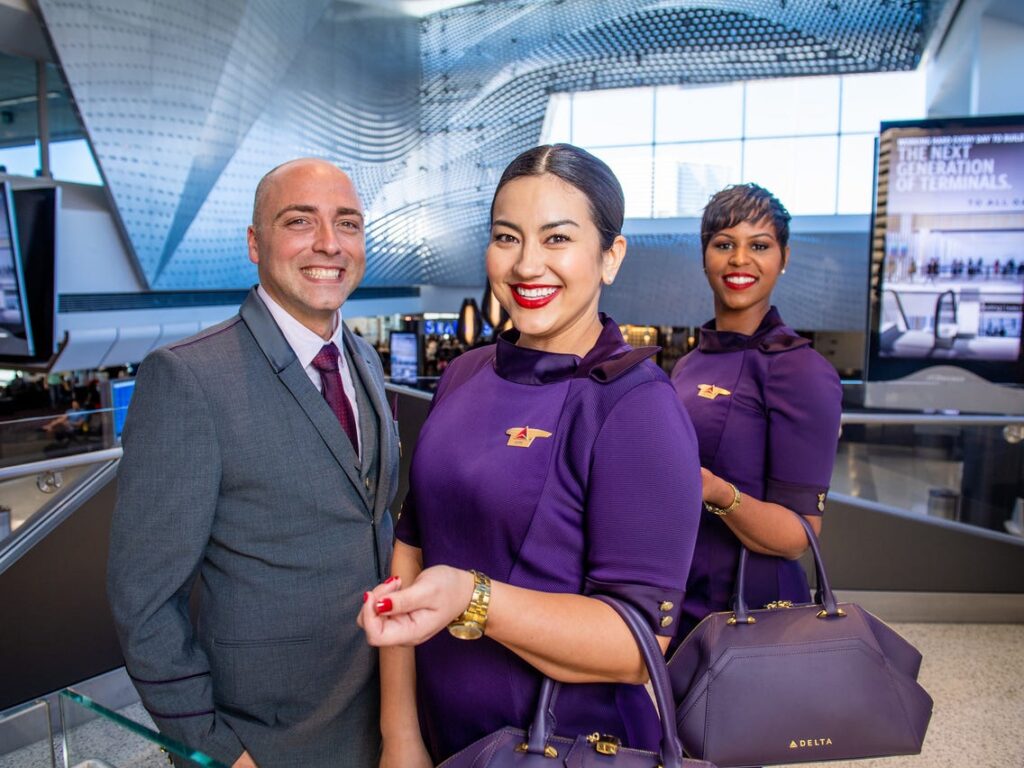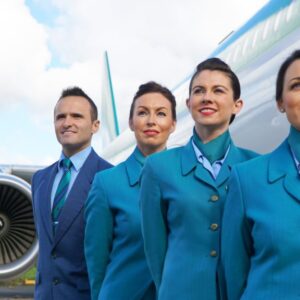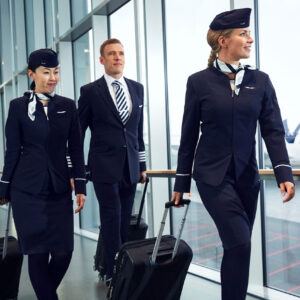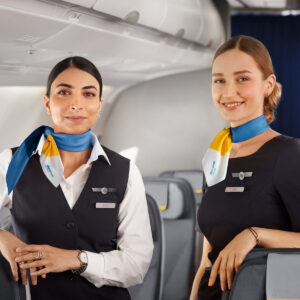Are you dreaming to explore the skies as a Delta Flight Attendant? Well, buckle up because with our comprehensive guide to Delta Flight Attendant requirements, you are one step closer to making your dreams a reality!
Table of Contents
Meet Delta Air Lines
Delta Air Lines is a major airline based in Atlanta, Georgia, in the United States. It’s one of the oldest airlines globally, tracing its roots back to 1925. Delta, along with its subsidiaries and regional partners like Delta Connection, operates over 5,400 flights every day. They serve 325 destinations in 52 countries across six continents. Delta is a founding member of the SkyTeam airline alliance. With approximately 90,000 employees as of the end of 2022, Delta has nine hubs, with the largest being Hartsfield–Jackson Atlanta International Airport.
Overview of Delta Airlines Flight Attendant Role
Delta Air Lines Flight Attendants are caring and safety-focused individuals who thrive on helping others and enjoy the dynamic nature of their work. They are quick thinkers who excel at solving problems and are dedicated to providing passengers with a pleasant and memorable experience.
Delta Flight Attendant Requirements [2]
- Be legally eligible to work in the United States.
- Be at least 21 years old when you apply.
- Have a high school diploma or GED.
- Speak, read, write, and understand English fluently.
- Obtain and maintain a valid passport and travel documents to travel to destinations served by Delta. Your passport should have at least 30 months of validity remaining before your first day of training. If you’re not a U.S. citizen, you must demonstrate your ability to enter and exit the United States without any restrictions.
- Pass a pre-employment drug test mandated by the Department of Transportation and undergo a comprehensive background check, including a fingerprint-based criminal history record check.
- Be able to sit in an assigned jump seat with a seatbelt and shoulder harness securely fastened.
- Have the strength to open emergency exits and close aircraft doors weighing up to 60 pounds. You should also be able to operate a food/beverage cart, which requires exerting 32 pounds of force when pushing or pulling.
- Maintain privacy when handling personal data.
- Embrace diversity and different ways of thinking.
- Prioritize safety and security, both for yourself and others.
- Work flexible hours, including nights, weekends, holidays, and extended hours as needed.
- Be physically fit for a demanding role that involves frequent standing, walking, bending, stooping, pushing, pulling, reaching, and lifting. This includes pushing/pulling beverage or food carts and lifting and opening emergency aircraft doors.
- Retrieve and store items in overhead bins, which may be as high as 74 inches from the floor.
- Be willing to accept assignment to any Flight Attendant base after completing training, as per operational requirements. Bilingual candidates or those with LOD status must remain in their assigned base for at least 4 years after training completion.
- Be flexible to relocate or commute to and from your assigned base location, and be able to fly both international and domestic routes.
- Be adaptable to changes and willing to deal with scheduling changes on short notice.
Responsibilities [3]
- Providing excellent customer service while flying at altitudes of at least 8,000 feet.
- Assisting passengers with lifting and storing luggage in overhead bins.
- Demonstrating the use of safety and emergency equipment and ensuring safety protocols are followed.
- Preparing, serving, and selling beverages and meals, which may include options like beef, pork, seafood, and peanuts.
- Answering questions and assisting passengers, especially those with special needs.
- Ensuring the safety and comfort of passengers during delays or turbulence.
- Coordinating emergency procedures and providing emergency care, such as CPR and basic first aid, as necessary.
- Giving clear and accurate directions to passengers in emergencies.
- Making decisions in accordance with Delta policies, procedures, and values.
- Collaborating with team members to complete tasks.
- Handling unexpected changes in a fast-paced and sometimes stressful environment.
- Following safety procedures in all aspects of the job.
Flight Attendant Uniform [4]
Delta Air Lines has collaborated with GPS Apparel by Gap Inc. since 2022 to design a new uniform collection, influenced by feedback from its 70,000 uniformed employees.
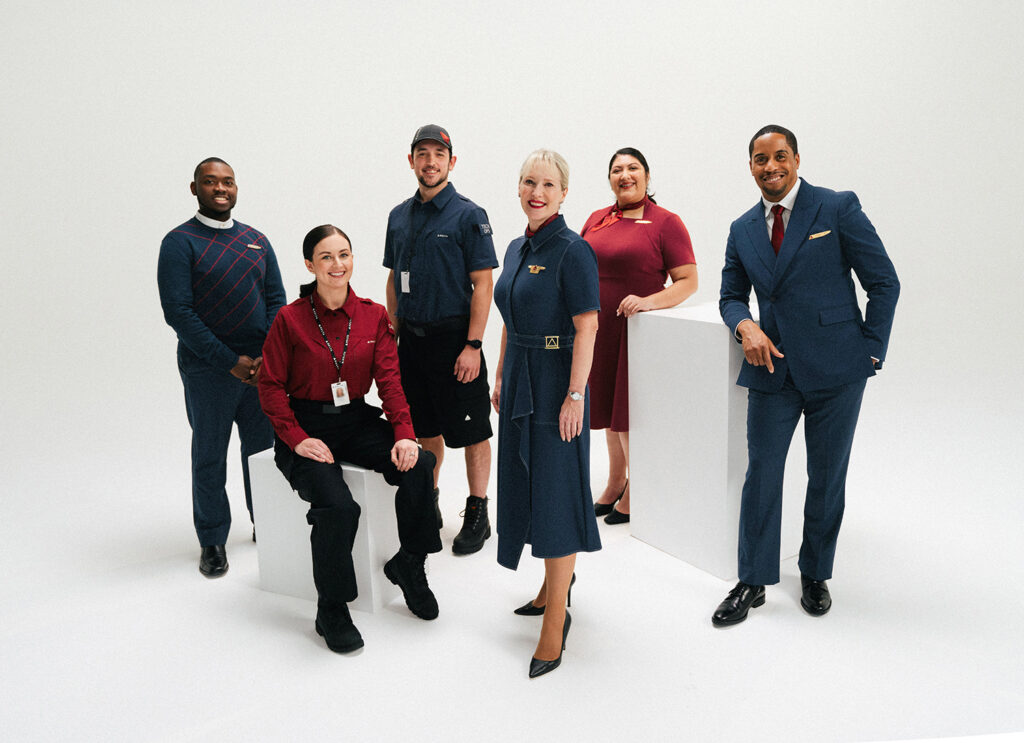
Inspired by Delta’s classic color palette and heritage, the prototypes feature deep navy blues, rich burgundy, and accents of bright red and white. Designed for comfort, durability, and inclusivity, the uniforms incorporate functional elements tailored to each division’s needs. The iconic widget logo, symbolising progress and excellence, is subtly integrated throughout the collection. Ranjan Goswami, SVP of Customer Experience Design, highlights Delta’s commitment to creating a uniform program that embodies the airline’s values and culture through listening, learning, and iteration.
Application and Recruitment Process Demystified [5]
Step 1 – Online Application
Go to the Delta Flight Attendant Careers page and fill out the application form.
Step 2 – Talent Assessment
Take the Talent Assessment to understand your workplace strengths.
Step 3 – Virtual Job Tryout (VJT)
Experience parts of the job virtually, showing your problem-solving, customer service, and job-related skills.
Delta Flight Attendant Jobs
Explore the latest Flight Attendant job opportunities with Delta
Step 4 – On-Demand Interview
If you do well in the VJT, you’ll be asked to record an On-Demand Interview using technology from Modern Hire.
Step 5 – In-Person Event Day
Successful candidates are invited to Delta’s HQ in Atlanta, GA, for Event Day.
Step 6 – Job Offer
If you shine on Event Day, you’ll get a job offer to become a Delta Flight Attendant.
Step 7 – Training
After successfully completing pre-employment, you’ll be given your training date and base assignment.
Read more about Delta Flight Attendant Recruitment Process.
How to Apply? Tips for a Successful Application
- Clarify your motivations and highlight your skills and interests in relation to the positions you’re applying for.
- Your CV should showcase your achievements. Be specific and provide measurable results of your projects.
- As a student or recent graduate, include relevant academic projects. Keep your application concise.
- The recruitment process focuses on matching your skills with the job requirements, so ensure clarity in your application.
Life in the Skies: A Day in the Life of a Delta Air Lines Flight Attendant
Get ready for some behind-the-scenes action! Hear from real-life Delta Air Lines Flight Attendant Monique as she share her story and give you a sneak peek into her daily adventures.
Salary [6]
Flight Attendants at Delta Air Lines typically earn between $60,000 and $112,000 per year, including base salary and extra pay. On average, their base salary is around $76,000 per year, with an additional average pay of $4,000 per year. This additional pay may include bonuses, stock options, commissions, profit sharing, or tips.
Delta Flight Attendant Jobs
Explore the latest Flight Attendant job opportunities with Delta.
Benefits [7]
- Good salary, bonuses based on company profits, and extra rewards for doing well.
- Save for the future with a 401(k) plan, and the company can contribute up to 9% of your pay.
- Paid time off for vacations, holidays, personal time, and maternity or parental leave.
- Medical, dental, vision, and life insurance, plus support for short and long-term disabilities.
- Assistance for family care, including help with fertility, surrogacy, adoption, and support for new parents.
- Programs for your overall wellbeing, covering physical, emotional, social, and financial health. Access resources for mental health support.
- Fly domestically and internationally for free or at a reduced rate for you and your family.
- Develop your career with programs that help you achieve your long-term goals.
- Join worldwide partnerships for community service and initiatives focused on sustainability.
- Connect with others through Business Resource Groups that promote inclusion and provide support.
- Receive recognition and rewards through the “Unstoppable Together” platform.
- Access over 500 discounts and special savings on things like car rentals, hotels, insurance, legal services, and childcare through Deltaperks.
Delta Flight Attendants in Pictures [Gallery]
Let’s talk style! Feast your eyes on the fabulous uniforms worn by Delta Flight Attendants. Looking good, feeling good – it’s all part of the job!

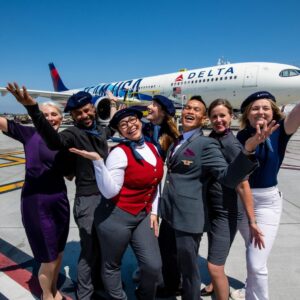

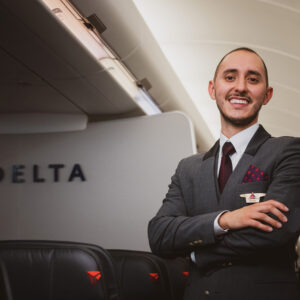
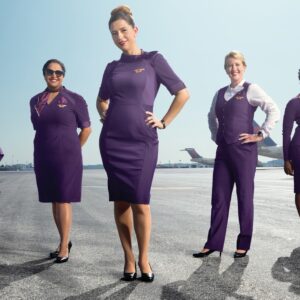

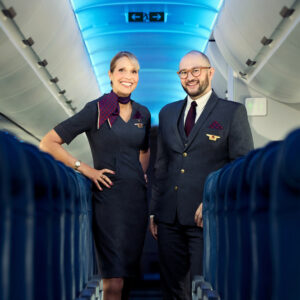
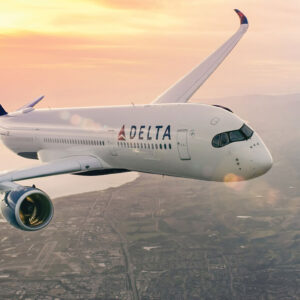
Flight Attendant Accommodation
Delta Air Lines ensures that Flight Attendants have hotel accommodation during layovers, but it doesn’t provide company-provided accommodation for them otherwise. If you are in need of accommodation, here are some useful links to help you find a place to stay:
These websites can assist you in locating suitable accommodation options located near Delta Air Lines bases.
Frequently Asked Questions
Got burning questions? We’ve got answers!
What is Delta Air Lines known for?
Delta Air Lines is a major airline based in Atlanta, Georgia, USA. With a history dating back to 1925, Delta operates over 5,400 flights daily to 325 destinations in 52 countries across six continents. It’s a founding member of the SkyTeam airline alliance and employs around 90,000 people.
What are the responsibilities of a Delta Airlines Flight Attendant?
Delta Flight Attendants provide excellent customer service, ensure passenger safety, assist with luggage, serve meals and beverages, and handle emergency procedures. They must prioritize safety, follow company policies, and collaborate with team members.
What are the requirements to become a Delta Flight Attendant?
To become a Delta Flight Attendant, you must be legally eligible to work in the U.S., at least 21 years old, have a high school diploma or GED, and fluently speak, read, write, and understand English. You must pass a background check, drug test, and physical fitness test, among other requirements.
What is the recruitment process like for Delta Flight Attendants?
The recruitment process involves an online application, a talent assessment, virtual job tryouts, an on-demand interview, an in-person event day, and job offer. Successful candidates undergo training before starting their role as Flight Attendants.
What does the Delta Flight Attendant uniform look like?
Delta’s Flight Attendant uniforms feature deep navy blues, rich burgundy, and accents of bright red and white. Designed for comfort and inclusivity, they incorporate functional elements tailored to each division’s needs and showcase the iconic widget logo.
How much do Delta Flight Attendants earn, and what benefits do they receive?
Delta Flight Attendants typically earn between $60,000 and $112,000 per year, including base salary and extra pay. They receive benefits such as a 401(k) plan, paid time off, medical and life insurance, travel discounts, career development programs, and more.
What does the training process entail for Delta Flight Attendants?
Delta Flight Attendants undergo comprehensive training, including classroom instruction, online modules, and hands-on practice. Training covers safety procedures, customer service skills, emergency protocols, and company policies.
What are the primary responsibilities of Delta Flight Attendants?
Delta Flight Attendants provide excellent customer service, assist passengers with luggage, ensure safety protocols are followed, serve meals and beverages, handle emergencies, and collaborate with team members to ensure a pleasant and safe flight experience.
How can I apply to become a Delta Flight Attendant, and what tips can you provide for a successful application?
You can apply on Delta’s Flight Attendant Careers page and follow the recruitment process steps. To succeed, clarify your motivations, highlight relevant skills, showcase achievements, and ensure clarity and conciseness in your application.
Does Delta provide accommodation for Flight Attendants during layovers?
Yes, Delta ensures that Flight Attendants have hotel accommodation during layovers. However, the company does not provide company-provided accommodation for Flight Attendants outside of layovers.
Company Facts
Founded: 1925
Headquarter: Atlanta, Georgia, United States
Operating Bases: Atlanta, Boston, Detroit, Los Angeles, Minneapolis/St. Paul, New York–JFK, New York–LaGuardia, Salt Lake City, Seattle/Tacoma.
Frequent-flyer program: SkyMyles
Subsidiaries: Aeromexico (20%), Air France-KLM (3%), China Eastern Airlines (3%), Clear Secure (5%), Delta TechOps, Endeavor, Air Hanjin (15%), LATAM Airlines (10%), Trainer Refinery, Unifi Aviation (49%), Virgin Atlantic (49%), Wheels Up (21%).
Fleet Size: 978
Contact Information
Address: Delta Air Lines, 1030 Delta Boulevard, Atlanta, GA 30354-1989, United States
Phone number: 00 1 800-221-1212
Disclaimer: The information provided in this article is accurate as of the time of writing. However, the requirements and processes for becoming a Delta Air Lines cabin crew member may change over time. Therefore, we strongly recommend visiting the official Delta Air Lines website or contacting their recruitment team for the most current and accurate information.
Conclusion
Are you ready to spread your wings and join Delta Crew? With our comprehensive guide to Delta Flight Attendant requirements, you are one step closer to making your dreams a reality. Get ready to embark on an exciting journey filled with adventure, lifelong friendships, and endless opportunities!
References:
1. Delta Air Lines. “FA Candidate Guide.” Delta Air Lines Careers Website. Retrieved April 19, 2024.
2. Delta Air Lines. “FA Candidate Guide.” Delta Air Lines Careers Website. Retrieved April 19, 2024.
3. Delta Air Lines. (2024, March 20) “First look: Delta employees preview new uniform prototypes.” Delta Air News Website. Retrieved April 19, 2024.
4. Delta Air Lines. “Flight Attendant Careers.” Delta Air Lines Careers Website. Retrieved April 19, 2024.
5. Glassdoor. (2024, April 7). “Delta Air Lines Flight Attendant Salaries.” Glassdoor Website. Retrieved April 19, 2024.
6. Delta Air Lines. “Career Benefits and Total Rewards.” Delta Air Lines Careers Website. Retrieved April 19, 2024.


